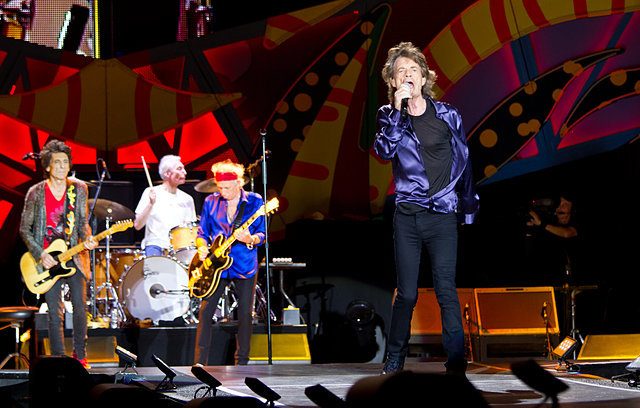Bo Diddley (1928-2008)
He invented his name, his guitar and a beat that changed music forever. The Stones, the Dead, Robbie Robertson and others remember one of the founders of rock & roll
For a young black singer and guitarist from Chicago with only a minor hit, getting booked on The Ed Sullivan Show in 1955 was a career-making opportunity. Sullivan asked him to sing Tennessee Ernie Ford’s country smash ”˜Sixteen Tons;’ instead, the young star unleashed the guitar maelstrom that introduced him to the world, and whose title bore his name: ”˜Bo Diddley.’
The audience went wild, and Sullivan fumed, promising that Diddley would never appear on television again. Later, Diddley recalled the aftermath: “He says to me, ”˜You’re the first coloured boy ever double-crossed me on a song.’ And I started to hit the dude, because I was a young hoodlum out of Chicago, and I thought ”˜coloured boy’ was an insult.”
Diddley was pure masculinity, with songs that shouted his name and proclaimed his skills. With a cigar-box-shape guitar he designed himself, a Stetson on his head and a sound that permanently reoriented the world’s sense of rhythm, Bo Diddley called himself “the Originator.” And when he died at age 79 on June 2 from heart failure at his home in Archer, Florida, music lost a one-of-a-kind pioneer. “He was by far the most underrated of any Fifties star,” says Phil Spector. “The rhythmic invention, the excellence of the writing, the power of the vocals ”“ nobody else ever did it better.”
Diddley had only one Top 40 pop hit, 1959’s ”˜Say Man,’ but the impact of his songwriting, his guitar-playing and that signature “Bo Diddley beat” were as significant as anyone’s contributions in the history of rock & roll. The “one-two-three, one-two” beat ”“ first established on his debut, 1955’s Number One R&B hit ”˜Bo Diddley’ ”“ propelled classic songs by Bruce Springsteen (”˜She’s the One’), U2 (”˜Desire’), George Michael (”˜Faith’), the Who (”˜Magic Bus’) and countless others. “It was like I did the ”˜Bo Diddley’ song by accident,” Diddley said. “I just started beating and banging on my guitar. And then I fooled around and got it syncopated right, where it fit the dirty lyrics that I had. And then it just seemed to fall right into place.”
If Diddley’s lone contribution to rock & roll had been the Bo Diddley beat, he would already be an immortal. But his legacy is much larger than that. He made records that were built on boasting rhymes decades before LL Cool J or Run-DMC. And he reduced his music to its basic rhythmic core, stripping his sound to the pure primacy of the beat, long before James Brown used a similar approach to transform soul into funk. In Rock & Roll: An Unruly History, Robert Palmer wrote that “what Bo came up with was a comprehensive theory of rhythmic orchestration”¦ The tendency is for every instrument to become a rhythm instrument.”
“I never heard a rhythm come out of a guitar like that,” says Robbie Robertson, whose breakthrough moment was a slashing solo he played on Ronnie Hawkins’ 1963 cover of ”˜Who Do You Love.’ “I first met him when I was 16, and he both fascinated me and scared me at the same time.”





